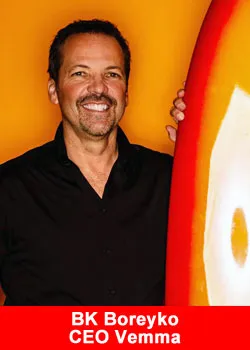New York Post: Verve Energy Drinks, Wants To Stay Off Regulators’ Radar

Vemma, the high-flying company behind Verve energy drinks, wants to stay off regulators’ radar.
Founder and CEO Benson K. Boreyko said the nine-year-old multilevel marketing company is changing its business practices to get ahead of any possible fallout from the Federal Trade Commission’s investigation into Herbalife, which has a similar business model.
“I always want to stay on the good side of the FTC because they have guns,” Boreyko told The Post.
Vemma, which recruits students to sell its caffeine-fueled drinks on college campuses, will no longer require salespeople to make minimum monthly product purchases of $150 to qualify for commissions. The company will also end sign-up fees.
The changes, which went into effect on April 1, set Vemma apart from many MLMs, including Herbalife, which requires distributors and their sales recruits to make minimum product purchases of more than $2,000 to qualify for royalties.
Even those uninterested in recruiting have to buy an introductory “member pack” and pay an annual membership fee after the first year.
Critics of multilevel marketing companies contend that these out-of-pocket expenses can quickly add up and that most salespeople end up losing money. But they are lucrative for the companies.
Boreyko acknowledges that the changes at Vemma, with revenues last year of about $200 million, could hurt sales initially.
“But why not clean up now before I hit a billion dollars and get bulletproof so when the regulators hear your name, they’ll say,
‘This is the way it should be done,’” Boreyko said.
Herbalife is under attack from activist investor Bill Ackman, who claims it is a pyramid scheme in which salespeople make more money recruiting new sales agents than selling products to consumers.
Last month, the Los Angeles-based nutritional products company disclosed that the FTC had opened an investigation, but has vehemently denied it is a pyramid scheme.
The Vemma changes highlight some lingering issues for MLMs, which remain controversial years after the FTC’s probe of Amway set guidelines for the industry, experts said.
“In cases where MLMs have been found to be pyramid schemes, the money brought in by recruitment in form of fees and product purchases have been the mechanisms that have allowed the pyramids to exist,” said MLM expert William Keep, dean of the School of Business at The College of New Jersey.
Even some industry insiders think product purchase requirements have to go.
“It would fix a lot of issues,” MLM lawyer Kevin Thompson suggested on a conference call last month with Barclays analyst Meredith Alder. “What happens is a lot of people buy stuff they never would buy in quantities, they would never have purchased just to qualify for bonuses.”
Thompson admitted the change could make it difficult for some MLM companies to survive.
Although Boreyko said he doesn’t want to throw “the [MLM] industry under the bus,” he now considers his company an “affiliate marketer” focused on customer sales, with e-commerce Web sites, free back office support and free mobile apps.
“We want to be more like Amazon than Amway,” he said. “You’ve never heard anyone call Amazon a pyramid scheme.”